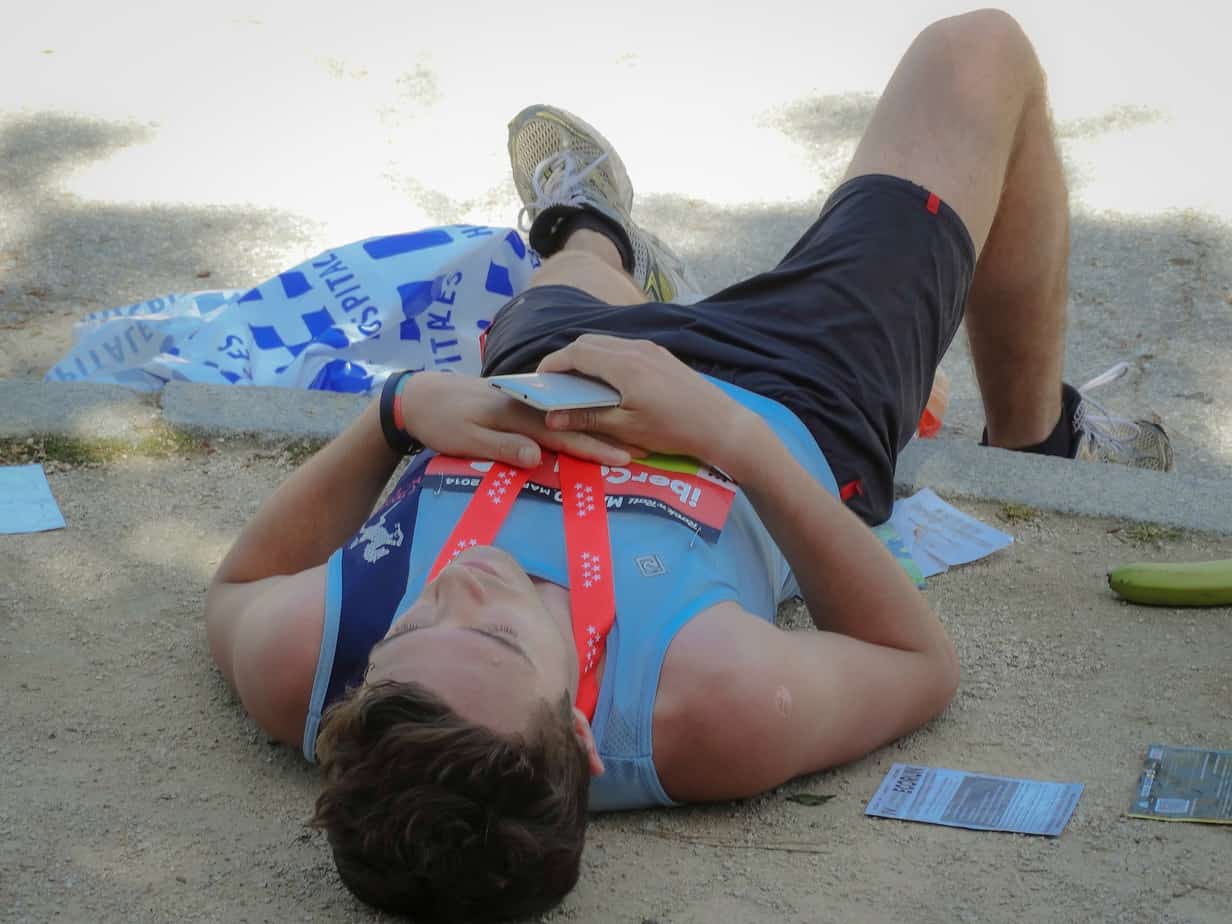Monitoring fatigue: Are subjective wellness, jumping performance, and submaximal running tests reliable?
Your weekly research review
- Background & Objective
- What They Did
- What They Found
- Practical Takeaways
- Reviewer’s Comments
- About the Reviewer
- Comments

Background & Objective
Monitoring fatigue is important in order for practitioners to manage players training loads. However, questions about logistics and reliability are normally raised when deciding to include fatigue monitoring tests.
Therefore, it is important practitioners use tests that are easy to implement and interpret, as well as being reliable and sensitive enough to monitor fatigue. This study looked to quantify the reliability of potential measures of fatigue amongst elite youth soccer players.
What They Did
Seventeen youth soccer players competing in the English U18 Premier League participated in this study.
All players took part in regular, full training during the study (8.5 h of pitch training and 2 h of gym training per week). The group was tested twice with 7-days between testing days. The following measures were obtained:
⇒ Subjective wellness (see HERE).
⇒ Countermovement jump (CMJ), squat jump (SJ), and drop jump (DJ). For the DJ, contact time (DJ-CT), jump height (DJJH), and reactive strength index (DJ-RSI) were calculated.
⇒ PlayerLoad (PL) and individual planes of PL: anterior-posterior (PLAP), mediolateral (PLML), and vertical (PLV) were obtained from a 3, 4, or 5-min submaximal run.
What They Found
The main findings of this study were:
⇒ Subjective markers of fatigue did not meet the thresholds for acceptable reliability.
⇒ Apart from DJ-JH, all measures obtained from jump assessments met the threshold for acceptable reliability.
⇒ Apart from %PLAP, all other measures obtained from the accelerometer data obtained during the 3, 4, and 5-min submaximal run met the threshold for acceptable reliability.
[optin-monster-shortcode id=”jyyw4xzrpuivfz8gggx4″]
Practical Takeaways
⇒ All accelerometer variables from PL demonstrated a good test-retest reliability from 3 min of sub-maximal shuttle running, however, vertical displacements of the PL may be particularly interesting as previous research have demonstrated a relationship with a decrease in the PLV and fatigue. When using tests to monitor fatigue, practitioners need to choose not only the more reliable tests/measures, but also those that are more sensitive to monitor fatigue. This test can be a good option to monitor fatigue levels of a large group of players in a short amount of time
⇒ In addition to accelerometer variables, practitioners can also monitor heart responses during the submaximal run.
⇒ When time is not a constraint, practitioners can also rely on CMJ, SJ, DJ-RSI, and DJ-CT to monitor fatigue levels
Reviewer’s Comments
“This is an interesting study that looks at the reliability of some tests and measures that can potentially be used to monitor fatigue. Nevertheless, readers need to understand that the sensitivity of these measures to detect fatigue was not tested. Interestingly, the subjective measures did not appear to be a reliable tool to monitor fatigue, and as such, care is advised when applying these in practice, as the authors did not interpret the values based on the individual variations (see HERE).
In my experience, when accounting for the individual variations, subjective measures can be a powerful tool to help begin a dialogue between practitioners and the athlete. I have been implementing a selfmade questionnaire using questions based on sleep quality (Did you?: sleep well; sleep poorly; didn’t sleep), recovery state (1-10), soreness (What side and how much?), and pain (Where?). In addition to this, I recommend practitioners add some individual tests according to previous injuries or niggles (e.g. squeeze test, knee to wall, handgrip) in order to manage players for training.”
Want to learn more?
Then check these out…
Watch this video
Read this article
Read this article
Listen to this podcast
The full study can be read here.
Want more research reviews like this?
Every coach understands the importance of staying up-to-date with the latest sports performance research like this, but none have the time, energy, or even enjoys spending hours upon hours searching through PubMed and other academic journals. Instead, your precious time is better-spent coaching, programming, and managing all the other more important aspects of your job.
The solution…
The Performance Digest
The Performance Digest is a monthly summary of the latest sports performance research reviewed by our team of hand-selected experts. We sift through the 1,000+ studies published in the realms of sports performance every, single month and review only those which are important to you. Each monthly issues contains 19 research reviews in all of the following disciplines:
This comprehensive topic base ensures you’re constantly expanding your knowledge and accelerating your career as quickly as humanly possible. The reviews are also hyper-focused, 1-page summaries, meaning there’s no jargon or wasted time. We cut right to the chase and tell you what you need to know so you can get back to coaching.
Join the thousands of other coaches who read it every, single month. Click here to grab your FREE copy…
[optin-monster-shortcode id=”nhpxak0baeqvjdeila6a”]


